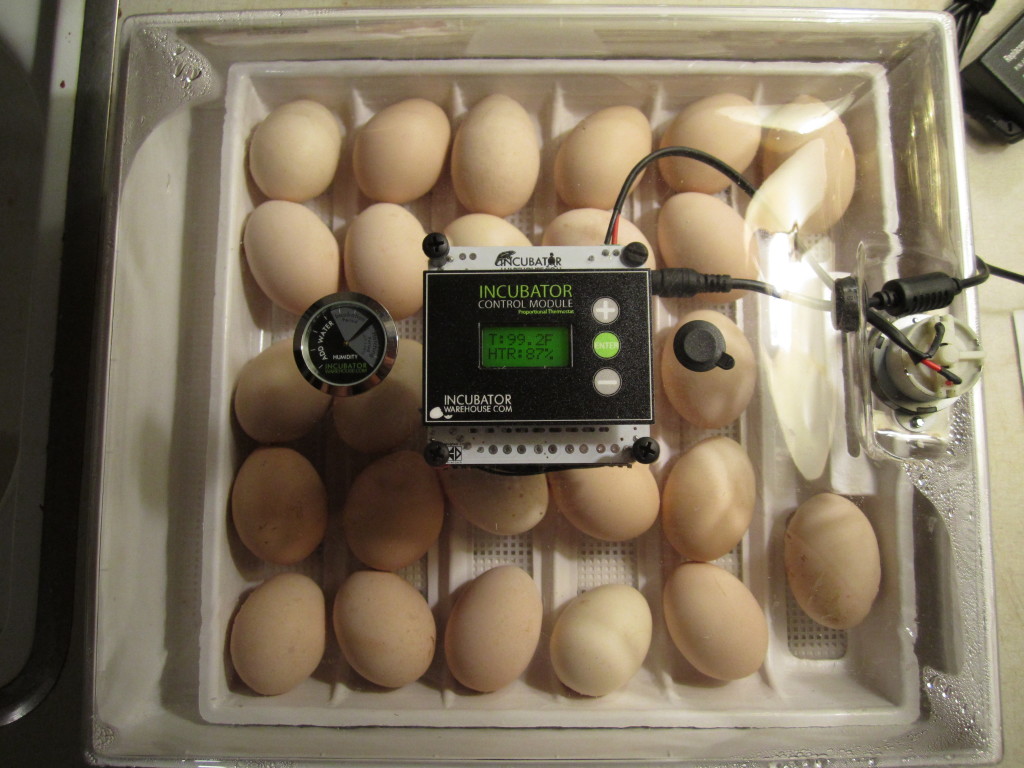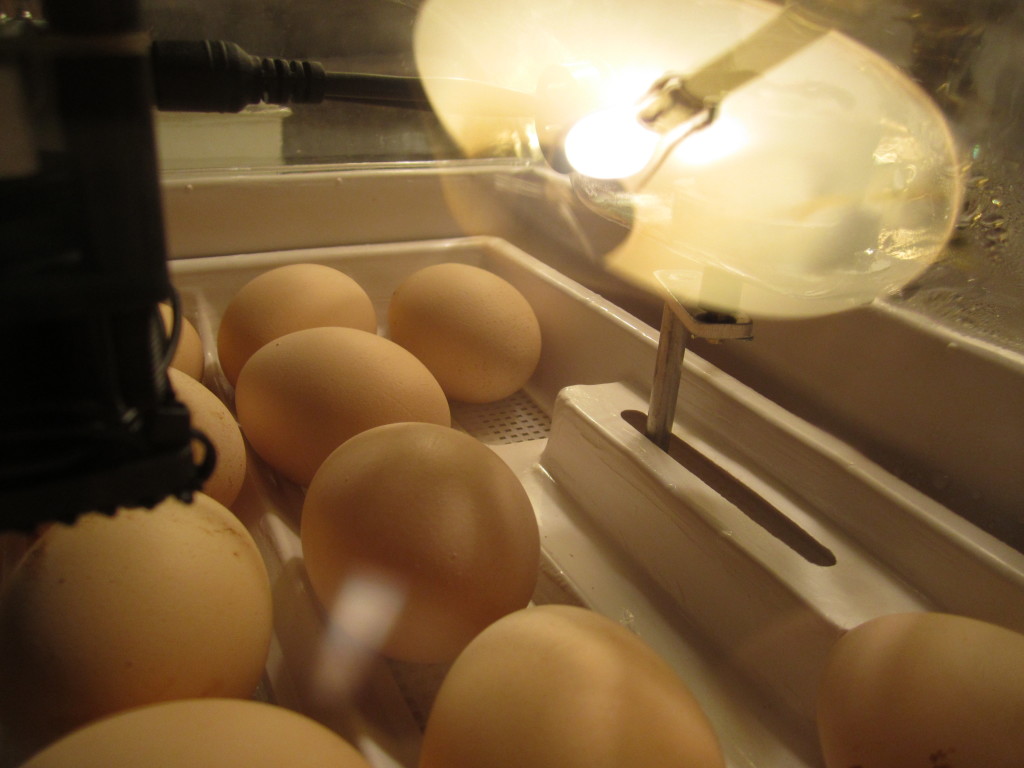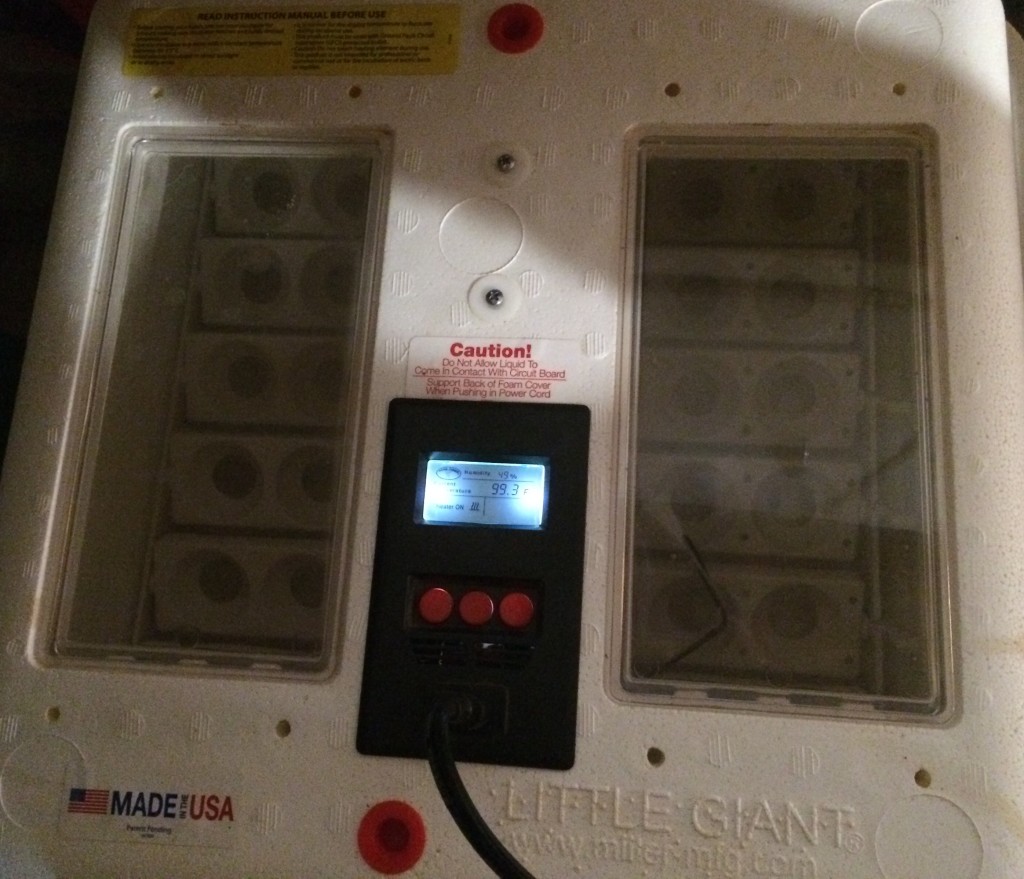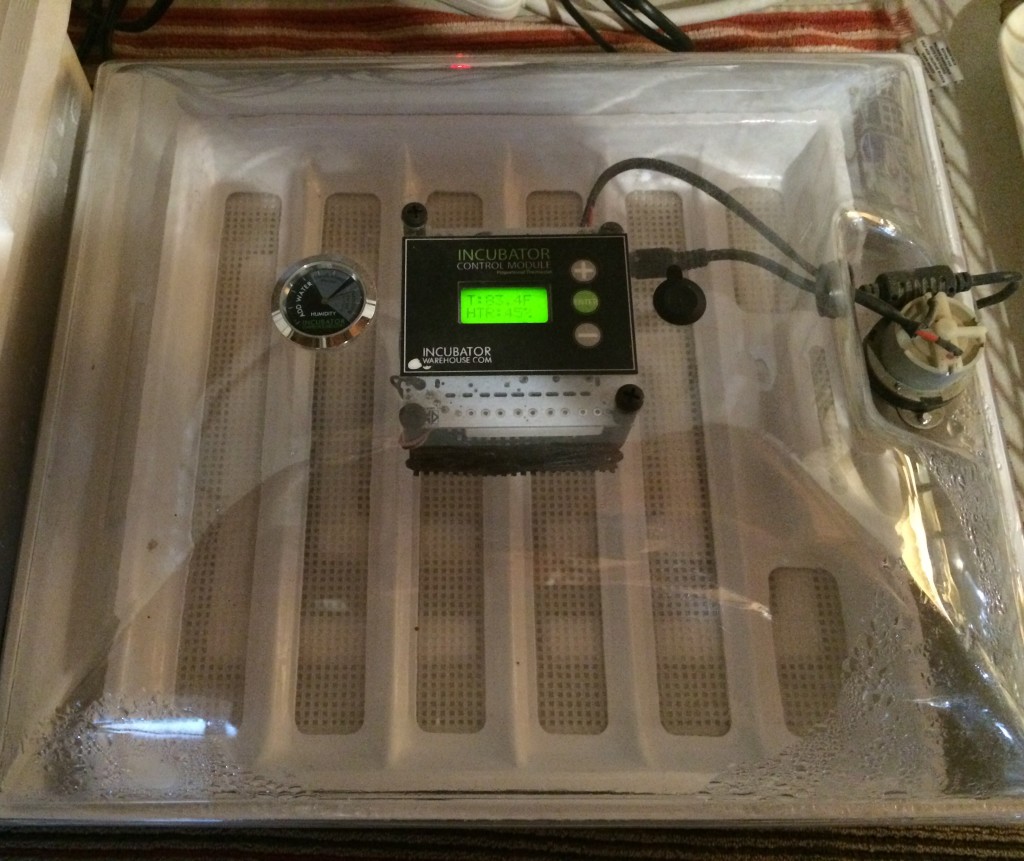the time has come for us to have some babies… 21 chicken babies, hopefully!
we finally broke out our new incubator, the incuview all-in-one egg incubator, that has the ability to keep eggs moist, turn them every few hours, and keep them warm and toasty just like a mother hens’s butt! another really cool thing about the incuview is that it is capable of incubating reptile eggs and many bird eggs, such as chicken, goose, duck, and turkey.
so, this past weekend we decided to incubate 21 chicken eggs (this is the number that will fit in the incubator) so that we can have some new chickens this coming year! we started incubating on sunday and we saved eggs from last wednesday through saturday to be sure that we would have enough to incubate. these we stored at room temperature, pointy end down. we also made sure to shift them in their tray every day so that nothing inside the egg would begin to stick to the shell or form air bubbles. when sunday came around, we chose the best shaped, cleanest eggs from our collection and placed them end to end in the incubator.

our incubating eggs!
the default temperature fr the incubator is 99.5 degrees, which is ideal for chicken eggs, and the dial measuring humidity is easy to read and understand. i do recommend, however, putting less water in the bottom water tray than you think you need… i poured out a good bit of the water today, and the humidity is still very high inside the device. i’ll be checking the levels again tomorrow and pouring out even more water if the humidity doesn’t drop.
chicken eggs hatch after 21 days of incubation, and the last few days of incubation require a different humidity level in the environment so that as they hatch the chicks don’t get stuck to their shell. our incubator has a setting that allows for this increase in humidity and we can disengage the turning device so that the eggs are not turned during the last few, critical days.

the turning device is the metal rod that you see coming down from the lid of the incubator.
this weekend or sometime next week we will be able to hold the eggs up to a bright light to see which of the eggs are fertilized and which are developing properly. it’s like a chicken ultrasound!
the hardest part of the hatching will be watching the chicks be born without interfering. it is great that you can see the whole event but since they recommend waiting every few hours to remove hatched and dried off chicks, i’m going to be jumping out of my skin while i wait to hold them!
we’ve decided that once they’re born we’re going to keep them in a pen inside of the basement shower so that they can grow without being molested by bolt and without taking up too much of our basement space. once spring rolls around, we’re going to replace some of our older hens with this new batch, and eat whichever older hens and newer roosters are left.
so, we’re starting off on a new adventure here at kuska wiñasun homestead, an adventure that will hopefully end in many little chicks!
.:.



